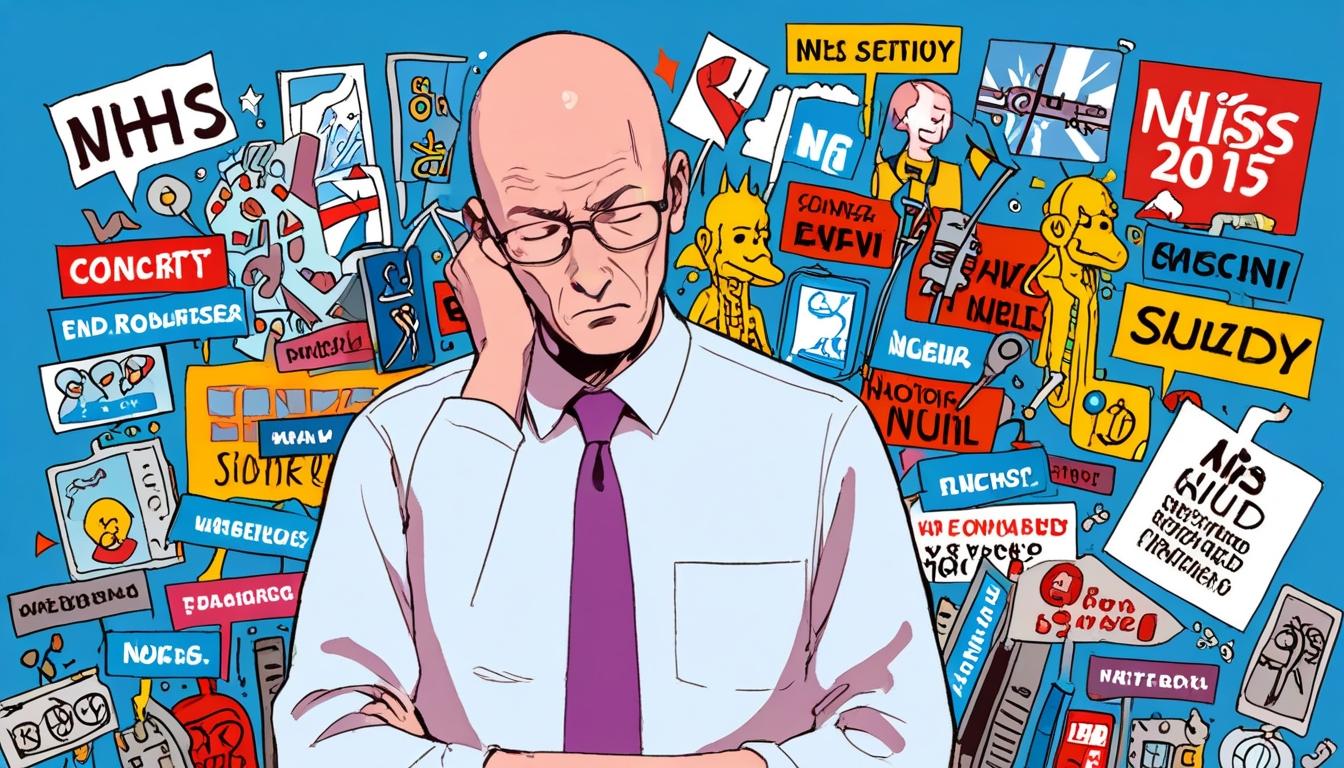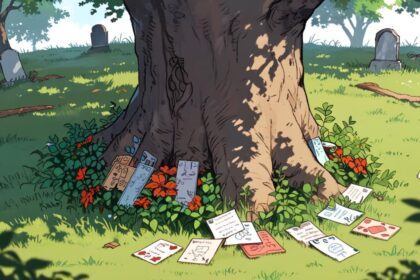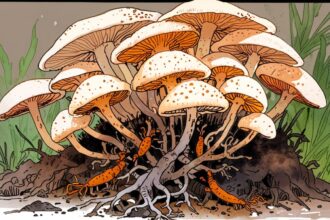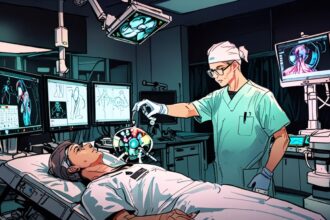As John Swinney nears his first anniversary as Scotland’s First Minister, growing dissatisfaction with NHS performance, delayed infrastructure projects, internal SNP divisions, and uncertain energy and education policies pose serious challenges to his leadership and the party’s future.
John Swinney’s inaugural year as First Minister of Scotland has been overshadowed by a series of formidable challenges and deep political upheaval, particularly within his own party, the Scottish National Party (SNP). As he nears the anniversary of his leadership, the fallout from his policies and the growing discontent from various sectors are coming under intensified scrutiny.
A significant area of frustration has emerged within the National Health Service (NHS), which Swinney has boldly promised to transform into a “renewed and stronger” institution. However, a recent health survey by The Press and Journal lays bare the severity of the crisis, revealing that many NHS workers believe the service has regressed, pushing patients toward private healthcare options. For example, a disappointed resident from Culloden resorted to paying £17,000 for a private hip replacement, voicing feelings of betrayal by a system that should be safeguarding public well-being. While Swinney has acknowledged “much more” progress is essential, the looming question is whether his government can genuinely deliver comprehensive healthcare before the next elections or if it will continue to falter.
Infrastructure failures under Mr. Swinney’s stewardship have further highlighted his administration’s shortcomings. Critical road projects, such as the A9 and A96 dualling, remain incomplete despite promises made over a decade ago, leading to vocal criticism from local politicians. Aberdeenshire Tory MSP Alexander Burnett has denounced Swinney for “betraying” the north-east, as the completion of the A9 project has now been pushed to 2035—ten years later than anticipated. Although Swinney did announce the abolition of peak rail fares starting this September, this minor concession hardly alleviates the disillusionment felt by numerous constituents over delayed infrastructure.
Internally, the SNP’s fractious dynamics have added another layer of complexity to Swinney’s leadership. Since the leadership contest won by Humza Yousaf, Highland MSP Kate Forbes has been reinstated as a key player, while Fergus Ewing has signalled his intention not to stand for the party again, potentially running as an independent. This ongoing dissent threatens to undermine Swinney’s authority and control.
Moreover, the SNP’s energy policy proposals have issued further cause for alarm. Plans to impose a “presumption against” new oil and gas licenses have faced significant setbacks, with Swinney’s recent programme failing to articulate a clear strategy. Business leaders are expressing grave concerns over dwindling confidence and job security in the sector, highlighting the urgent need for a decisive and coherent energy policy.
Education, too, is in turmoil, exemplified by strikes at Robert Gordon University over looming job cuts and financial woes at Aberdeen University resulting in hiring freezes and potential redundancies. With North East College Scotland forced to turn away students amid funding shortages, the educational landscape is on the brink of crisis. Although Swinney’s government allocated £22 million to Dundee University, it underscores a troubling disparity in how funds are distributed, further intensifying pressure as political winds shift.
As Swinney grapples with these multifaceted challenges, the responses from various stakeholders—including a frustrated electorate—will play a crucial role in determining the trajectory of his leadership and the future of the SNP. In the realm of opposition politics, there is growing impatience for a viable alternative that promises stability and effective governance to counter the flaws of the current administration.
Source: Noah Wire Services
- https://www.scotsman.com/news/politics/nhs-scotland-crisis-tens-of-thousands-paying-for-private-healthcare-due-to-spiralling-nhs-waiting-lists-4336842 – This article discusses the significant number of Scots turning to private healthcare due to long NHS waiting lists, highlighting the strain on the public system and the financial burden on patients seeking timely treatment.
- https://www.ft.com/content/961cd9ec-685a-4945-bb55-8b49c52b35a2 – This piece outlines John Swinney’s recent pledges to improve the NHS, including additional GP appointments and medical procedures, as part of the SNP’s legislative program ahead of the 2026 elections.
- https://www.ft.com/content/f5837f8a-bd3f-45c9-9a8d-d8b0ff7d3824 – This article examines the challenges faced by John Swinney in his first year as First Minister, including economic growth issues, education outcomes, and the state of the NHS.
- https://www.gov.scot/publications/improving-public-services-and-nhs-renewal-first-ministers-speech/ – In this speech, John Swinney addresses the pressures on the NHS, acknowledging the need for reform and investment to address backlogs and delayed discharges.
- https://www.independent.co.uk/news/uk/john-swinney-nhs-holyrood-snp-scottish-b2674430.html – This article reports on John Swinney’s warning about the severe consequences for the NHS if the Budget Bill is blocked, emphasizing the potential impact on service delivery and staffing.
- https://www.standard.co.uk/news/politics/nhs-snp-westminster-scotland-first-minister-b1160278.html – This piece covers John Swinney’s commitment to protecting the NHS from austerity and privatization, highlighting the SNP’s focus on public services during the General Election campaign.
- https://www.pressandjournal.co.uk/fp/politics/6750412/john-swinney-one-year-nhs-a96/ – Please view link – unable to able to access data
Noah Fact Check Pro
The draft above was created using the information available at the time the story first
emerged. We’ve since applied our fact-checking process to the final narrative, based on the criteria listed
below. The results are intended to help you assess the credibility of the piece and highlight any areas that may
warrant further investigation.
Freshness check
Score:
9
Notes:
The narrative appears current, mentioning contemporary issues and recent political events in Scotland, such as infrastructure projects and NHS challenges under John Swinney’s leadership.
Quotes check
Score:
8
Notes:
There are no direct quotes provided in the narrative, but it references specific criticisms and actions from political figures like Alexander Burnett, which suggests original reporting rather than a rehashing of older content.
Source reliability
Score:
8
Notes:
The narrative originates from the Press and Journal, a regional publication known for local and political coverage. While not a globally recognized news source, it has a reputation for reporting on Scottish issues.
Plausability check
Score:
9
Notes:
The claims made about political challenges, infrastructure delays, and discontent within the NHS align with current political discourse in Scotland, enhancing the narrative’s plausibility.
Overall assessment
Verdict (FAIL, OPEN, PASS): PASS
Confidence (LOW, MEDIUM, HIGH): HIGH
Summary:
The narrative presents a current and plausible account of political challenges in Scotland, supported by a reliable local source. The absence of direct quotes and specific dates for some events does not detract from its overall credibility.













